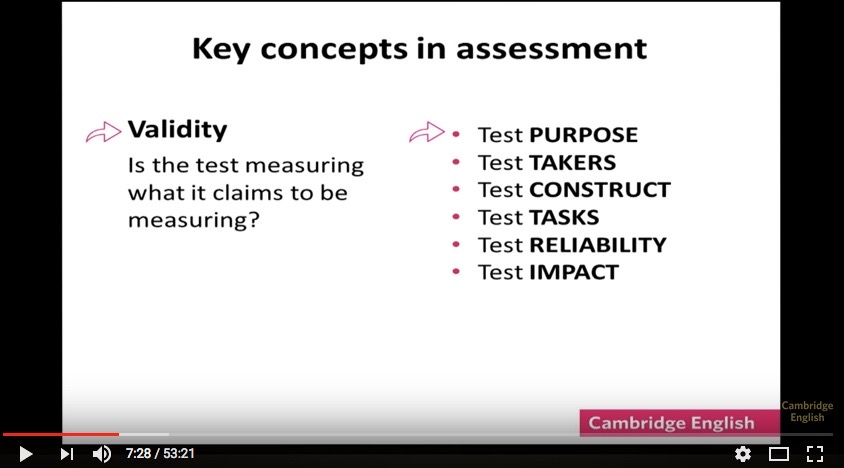Does ‘assessment literacy‘ really just mean ‘testing literacy’? You’d be forgiven for thinking so: frequently discussions, presentations or articles which purport to be about assessment more broadly actually deal with testing only, marginalising any other types of assessment and thus shaping our ability to imagine alternatives.
A good illustration of this in ELT is the Cambridge English Teaching Framework, the aims of which are outlined on page 2 of this document:

In terms of assessment, the ‘key knowledge and skills’ are described in this way (page 3):

The focus shifts very quickly from assessment to tests and this is typical of other resources relating to the Framework. For example, the Cambridge English Teacher Development Tracker, a self-assessment tool intended to help teachers ‘understand where they are in their professional development’. Out of 72 questions, only four (5.5%) are about assessment (compared to five on lesson planning):
![]()
![]()
Notice how, again, very quickly ‘assessment literacy’ really just becomes ‘testing literacy’; nothing else enters the framework.
One more example from Cambridge: this webinar from last year on ‘what every teacher should know’ about assessment.

5 minutes in, the presenters Drs Galaczi and Khabbazbashi introduce the concept of ‘assessment literacy’ but then immediately start talking about tests.

2 minutes later, they introduce the concept of ‘validity’ but again discuss this only in terms of tests.

This focus on tests as, apparently, the only viable form of assessment is even more pronounced in the ‘handout’ accompanying the webinar. The two together provide an excellent illustration of how, in many PD events and artifacts, ‘assessment literacy’ really just means ‘testing literacy’.
But, you might say, this is to be expected from an organisation so closely associated with large-scale testing such as Cambridge English. Their influence, however, extends throughout ELT to the extent that both the ‘Understanding assessment’ webinar and the Teacher Development Tracker are included as prominent parts of English Australia’s own Continuing Professional Development Framework. This is unfortunate as it is likely to further expand and legitimise the test-centrism exemplified above.